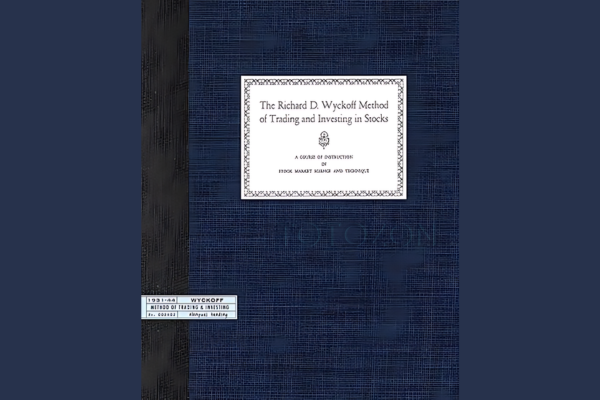-
×
 Order flow self-study training program with iMFtracker
1 × $10.00
Order flow self-study training program with iMFtracker
1 × $10.00 -
×
 Deep Dive Butterfly Trading Strategy Class with SJG Trades
1 × $41.00
Deep Dive Butterfly Trading Strategy Class with SJG Trades
1 × $41.00 -
×
 TRADING NFX Course with Andrew NFX
1 × $5.00
TRADING NFX Course with Andrew NFX
1 × $5.00 -
×
 The Indices Orderflow Masterclass with The Forex Scalpers
1 × $23.00
The Indices Orderflow Masterclass with The Forex Scalpers
1 × $23.00 -
×
 Best of the Best: Collars with Amy Meissner & Scott Ruble
1 × $15.00
Best of the Best: Collars with Amy Meissner & Scott Ruble
1 × $15.00 -
×
 0 DTE Options Trading Workshop with Aeromir Corporation
1 × $15.00
0 DTE Options Trading Workshop with Aeromir Corporation
1 × $15.00 -
×
 The Orderflows Trade Opportunities Encyclopedia with Michael Valtos
1 × $8.00
The Orderflows Trade Opportunities Encyclopedia with Michael Valtos
1 × $8.00 -
×
 Scalp Strategy and Flipping Small Accounts with Opes Trading Group
1 × $5.00
Scalp Strategy and Flipping Small Accounts with Opes Trading Group
1 × $5.00 -
×
 AI For Traders with Trading Markets
1 × $31.00
AI For Traders with Trading Markets
1 × $31.00 -
×
 $20 – 52k 20 pips a day challange with Rafał Zuchowicz - TopMasterTrader
1 × $5.00
$20 – 52k 20 pips a day challange with Rafał Zuchowicz - TopMasterTrader
1 × $5.00 -
×
 Advanced Spread Trading with Guy Bower - MasterClass Trader
1 × $15.00
Advanced Spread Trading with Guy Bower - MasterClass Trader
1 × $15.00 -
×
 Matrix Spread Options Trading Course with Base Camp Trading
1 × $31.00
Matrix Spread Options Trading Course with Base Camp Trading
1 × $31.00 -
×
 Butterfly and Condor Workshop with Aeromir
1 × $15.00
Butterfly and Condor Workshop with Aeromir
1 × $15.00 -
×
 The Best Option Trading Course with David Jaffee - Best Stock Strategy
1 × $15.00
The Best Option Trading Course with David Jaffee - Best Stock Strategy
1 × $15.00
Stock Market Science and Technique
$15.00
File Size: Coming soon!
Delivery Time: 1–12 hours
Media Type: Online Course
Master Stock Market Science and Techniques
Introduction
Trading in the stock market is often seen as an art, but there is a strong scientific foundation behind successful trading strategies. Understanding the science and techniques behind stock market trading can significantly enhance your ability to make informed decisions.
The Basics of Stock Market Science
What is Stock Market Science?
Stock market science involves using quantitative analysis, mathematical models, and empirical research to understand market behavior. It provides a systematic approach to analyzing stocks and predicting market trends.
Why is Science Important in Trading?
Applying scientific methods to trading helps reduce emotional bias and improves the accuracy of predictions. It allows traders to base their decisions on data and evidence rather than intuition.
Key Concepts in Stock Market Science
Market Efficiency
The Efficient Market Hypothesis (EMH) suggests that stock prices fully reflect all available information. Understanding market efficiency helps traders develop strategies that exploit inefficiencies.
Technical Analysis
Technical analysis involves studying past market data, primarily price and volume, to forecast future price movements. Key tools include charts, indicators, and patterns.
Fundamental Analysis
Fundamental analysis focuses on evaluating a company’s financial health by analyzing financial statements, industry conditions, and economic factors. It helps in determining a stock’s intrinsic value.
Essential Techniques in Stock Market Trading
Charting and Patterns
Understanding Charts
Charts are visual representations of stock prices over time. They are fundamental tools for technical analysis.
Identifying Patterns
Patterns like head and shoulders, double tops, and flags can indicate potential market movements. Learning to recognize these patterns is crucial for technical traders.
Indicators and Oscillators
Moving Averages
Moving averages smooth out price data to identify trends. Common types include simple moving averages (SMA) and exponential moving averages (EMA).
Relative Strength Index (RSI)
RSI measures the speed and change of price movements. It helps identify overbought or oversold conditions in the market.
Quantitative Techniques
Statistical Analysis
Using statistical methods like regression analysis and probability theory helps in understanding market behavior and making predictions.
Algorithmic Trading
Algorithmic trading involves using computer programs to execute trades based on predefined criteria. It leverages speed and accuracy to capitalize on market opportunities.
Developing a Trading Strategy
Setting Goals and Objectives
Define your trading goals, whether they are short-term gains or long-term investments. Clear objectives guide your strategy development.
Risk Management
Effective risk management involves setting stop-loss orders, diversifying your portfolio, and determining position sizes to protect your capital.
Backtesting Strategies
Backtesting involves testing a trading strategy on historical data to ensure its effectiveness before applying it in real markets.
Tools for Stock Market Science
Trading Platforms
Platforms like Thinkorswim, MetaTrader, and TradingView offer advanced charting tools and analytics for traders.
Data Sources
Reliable data sources such as Bloomberg, Reuters, and Yahoo Finance provide the necessary information for analysis and decision-making.
Applying Science to Improve Trading Performance
Analyzing Market Trends
Use scientific methods to analyze trends and identify profitable opportunities. Trend analysis helps in making informed trading decisions.
Evaluating Stock Performance
Regularly evaluate the performance of your stock portfolio using scientific techniques to ensure it aligns with your investment goals.
Adapting to Market Changes
Markets are dynamic, and successful traders adapt their strategies based on new information and changing conditions. Continuous learning and adaptation are key.
The Role of Psychology in Trading
Understanding Behavioral Finance
Behavioral finance studies how psychological factors influence market behavior. It helps traders understand common biases and improve decision-making.
Managing Emotions
Trading can be emotional. Techniques such as mindfulness and maintaining a trading journal can help manage emotions and stay focused.
Conclusion
Mastering the stock market requires a blend of art and science. By understanding and applying scientific techniques, traders can make more informed decisions, reduce risks, and improve their chances of success. Embrace the science behind trading, and you’ll find yourself better equipped to navigate the complexities of the stock market.

Commonly Asked Questions:
- Business Model Innovation: Accept the truth of a legitimate business! Our strategy is organising a group buy in which participants share the costs. We use these cash to acquire popular courses from sale pages and make them available to people with limited financial resources. Despite the authors’ worries, our clients love the cost and accessibility we give.
- The Legal Environment: Yes or No The legality of our activity is ambiguous. While we don’t have specific permission from the course authors to resell the material, there is a technicality at work. The author did not specify any limits on resale when purchasing the course. This legal intricacy is both an opportunity for us and a boon for individuals looking for low-cost access.
- Quality Control: Uncovering the Truth
Getting to the heart of the issue – quality. Purchasing the course straight from the sale page guarantees that all documents and resources are the same as those obtained through traditional channels.
However, we distinguish ourselves by going beyond personal research and resale. It is crucial to note that we are not the official course providers, which means that the following premium services are not included in our package:
- There are no scheduled coaching calls or sessions with the author.
- Access to the author’s private Facebook group or web portal is not permitted.
- No access to the author’s private membership forum.
- There is no direct email support available from the author or their team.
We operate independently, with the goal of bridging the pricing gap without the extra services provided by official course channels. Your comprehension of our distinct approach is much appreciated.
Be the first to review “Stock Market Science and Technique” Cancel reply
You must be logged in to post a review.
Related products
Forex Trading
Forex Trading
Forex Trading
Forex Trading
Forex Trading
Forex Trading
Forex Trading
Forex Trading
Forex Trading
The Complete Guide to Multiple Time Frame Analysis & Reading Price Action with Aiman Almansoori
Forex Trading
Forex Trading


















Reviews
There are no reviews yet.